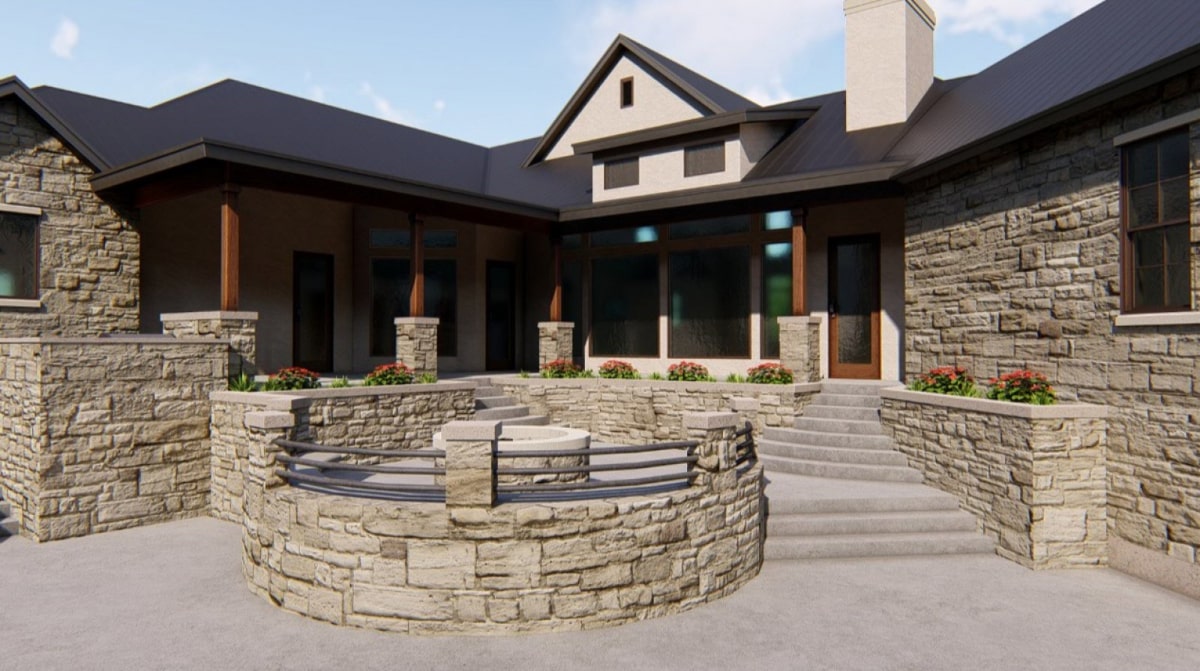Homeowners in the Lehigh Valley who are planning a new home or renovation often come across the term commercial construction and wonder how it truly differs from residential building. While both rely on skilled craftsmanship, the two approaches vary in scale, materials, regulations, and cost. Knowing these distinctions helps you better understand the construction process and ensures you select the right partner to guide your project with confidence.
Defining Commercial Construction and Residential Construction
Residential construction focuses on creating spaces where people live, such as single-family homes, townhouses, and smaller multi-family residences. These projects are designed with comfort, style, and daily living in mind.
Commercial construction, by contrast, covers properties built for business purposes, including retail stores, hospitals, office buildings, and warehouses. These projects are larger in scope and must meet stricter structural and safety requirements to accommodate heavy use and higher occupancy.
Some properties, such as apartment complexes, can blur the line. While they provide residential living, large-scale developments are classified as commercial because they function as rental businesses. This difference influences everything from financing to building codes, underscoring why homeowners benefit from working with a builder who understands how each category is regulated.
Scale and Project Scope Differences
The most visible difference between commercial construction and residential construction is scale. Commercial projects are typically larger, more complex, and require extensive coordination among architects, engineers, and multiple trade specialists. Managing these projects demands advanced scheduling, resource allocation, and project management to keep everything on track.
Residential projects, by contrast, often involve single homes or smaller clusters of housing. While the footprint is smaller, that doesn’t mean the work is less demanding. Residential construction requires precision in the details and close collaboration with homeowners to ensure every choice—from layout to finishes—reflects their vision.
Understanding the difference in scope is key: commercial projects rely on larger teams and specialized equipment, while residential projects rely on craftsmanship and homeowner collaboration to achieve the best results.
Materials and Construction Methods
Residential Construction Materials
Most homes are built using timber framing because it is both cost-effective and structurally well-suited for smaller-scale buildings. Beyond framing, residential projects emphasize aesthetics and comfort, with homeowners selecting finishes such as hardwood floors, ceramic tile, or granite countertops to create a personalized living environment. You can explore our project gallery to see completed homes that highlight these design possibilities.
Commercial Construction Materials
Commercial construction relies on materials that can withstand heavy use and meet rigorous safety standards. Steel, reinforced concrete, and large glass panels are common because they provide the strength, durability, and flexibility needed for multi-story buildings, retail centers, and office complexes.
The quantity and variety of materials in commercial projects is far greater, requiring specialized sourcing and installation expertise. From structural steel and rebar to scaffolding, mechanical systems, and complex wiring, commercial construction demands coordinated teams who are trained to handle each component effectively.
Building Codes and Regulations
Residential Building Standards
Residential construction must meet local building codes that address safety, energy efficiency, and livability. These requirements are generally less complex than those applied to commercial properties, but they still play a critical role in ensuring a home is safe and comfortable. For homeowners, working with a builder who understands these regulations means a smoother permitting process and confidence that every detail meets municipal standards.
Commercial Building Requirements
Commercial construction is subject to far stricter codes and compliance measures because these buildings serve larger groups of people and more intensive daily use. Regulations cover everything from structural design and fire safety systems to accessibility features, elevators, and parking facilities.
Meeting these codes requires specialized expertise in both local and federal regulations, as well as experience coordinating with municipal authorities. The complexity of commercial requirements highlights the importance of having seasoned construction professionals who can manage approvals and maintain compliance at every stage.
Cost Considerations
Project Investment Differences
Commercial construction typically requires a much larger financial commitment than residential building. The difference comes from factors such as project size, specialized materials, heavy equipment, complex mechanical systems, and compliance with stricter building codes. Labor and transportation costs also add to the investment, especially when coordinating large crews and specialized trades.
Residential projects, even for high-end custom homes, generally require a smaller budget in comparison. Costs are influenced by design complexity, material selections, and finishing details, but the overall investment remains lower than what is necessary for large commercial structures.
Return on Investment Factors
While commercial construction often involves higher upfront costs, these projects are designed to generate financial returns through business operations, leasing, or long-term property value.
Residential projects, by contrast, focus on creating lasting personal value. For homeowners, the return is measured in quality of life, comfort, and the opportunity to live in a space that reflects their lifestyle. Choosing the right builder ensures that the investment not only enhances property value but also creates a home that delivers daily enjoyment for years to come.
Equipment and Safety Requirements
Specialized Equipment Needs
Because of their size and complexity, most commercial construction projects require heavy machinery such as cranes, lifts, loaders, and large-scale earthmoving equipment. These machines are essential for handling tall structures, wide spans, and large job sites. Operating them safely requires trained professionals, specialized certifications, and strict adherence to safety protocols.
Residential construction rarely requires equipment on this scale. While some machinery may be used for excavation or structural work, most residential projects rely more on craftsmanship and precision in smaller spaces rather than extensive heavy equipment.
Safety and Risk Management
Safety plays a major role in both commercial and residential buildings, but the risks are much greater in commercial construction. Crews face hazards such as working at significant heights, operating heavy machinery, and managing exposure to materials like concrete dust or asbestos in older sites. Federal safety regulations, including OSHA standards, mandate rigorous protections to safeguard workers.
These enhanced safety requirements add to the overall cost of commercial projects but are critical for compliance and worker well-being. Residential projects, while less hazardous, still require an experienced builder who prioritizes safety at every stage to protect both workers and homeowners.
Timeline and Project Management
Commercial construction often follows accelerated schedules because every day of delay can impact business operations. These projects demand strong project management, with multiple trades working simultaneously and complex scheduling to keep large teams moving in sync. Any setback can create ripple effects across the entire timeline.
Residential construction timelines are different. Building a custom home involves steady progress through design, permitting, and construction, with room for collaboration and decision-making along the way. While not as compressed as commercial schedules, residential projects still benefit from experienced project management that keeps milestones on track without sacrificing the personal details that make a home unique.
Design Flexibility and Customization
One of the biggest advantages of residential construction is the freedom to personalize. Homeowners can collaborate with architects and builders to create spaces that reflect their lifestyle—whether that means reimagining room layouts, choosing premium finishes, or incorporating unique architectural features. Our custom home design services ensure that every detail, from materials to floor plans, is shaped around your vision.
Commercial construction, on the other hand, leaves far less room for change once plans are in motion. Strict regulations, budget requirements, and the functional demands of the space limit opportunities for mid-project customization. Adjustments must be carefully considered to avoid delays or cost overruns.
For homeowners, this distinction reinforces the value of residential construction: a process where design choices can evolve, and collaboration with a custom builder ensures the finished home truly feels like your own.
Choosing the Right Construction Partner
Understanding the differences between commercial construction and residential building is only the first step. For homeowners, the key decision lies in choosing a builder who can deliver personalized service, attention to detail, and clear communication throughout the process.
In the Lehigh Valley, working with an experienced residential builder who knows local codes, climate considerations, and community standards makes all the difference. With decades of expertise in custom building, Russo Design + Build has built a reputation for craftsmanship and collaboration, guiding homeowners through every stage of the process.
Ultimately, the choice between commercial and residential construction comes down to project goals. While commercial projects demand large-scale expertise, residential building requires a collaborative approach where craftsmanship and homeowner involvement are central. Selecting a builder who understands these priorities gives you confidence that your investment will result in lasting value.
Frequently Asked Questions
What makes commercial construction more expensive than residential construction?
Commercial construction involves higher costs because of its larger scale, specialized materials, strict compliance requirements, and need for heavy equipment. Steel and reinforced concrete, for example, are more costly than the timber framing often used in residential homes. In addition, commercial projects require larger crews, advanced mechanical systems, and compliance with complex safety codes—all of which add to the overall investment.
Can the same contractor handle both residential and commercial projects?
Some contractors work in both areas, but many specialize in one because of the distinct expertise each requires. Commercial construction demands deep knowledge of structural systems, accessibility regulations, and large-scale project management. Residential construction, on the other hand, calls for close collaboration with homeowners, precision in detail, and the ability to deliver highly customized spaces. For homeowners, the best results come from working with a builder who focuses on custom residential projects and understands how to create a home that reflects your lifestyle.
How do building codes differ between commercial and residential construction?
Commercial buildings face stricter regulations because they must safely accommodate larger numbers of people and heavy use. Codes cover everything from fire protection and accessibility to elevators, parking areas, and large-scale mechanical systems. Residential codes are less complex but still vital—they ensure a home is structurally sound, energy efficient, and comfortable for daily living. A knowledgeable residential builder will manage the permitting process and ensure compliance so that homeowners can move forward with confidence.
Start Your Project Today
Begin planning your next project. Reach out through our contact page or call us directly at (484) 239-8316 to discuss your goals and take the first step toward creating your dream home.






